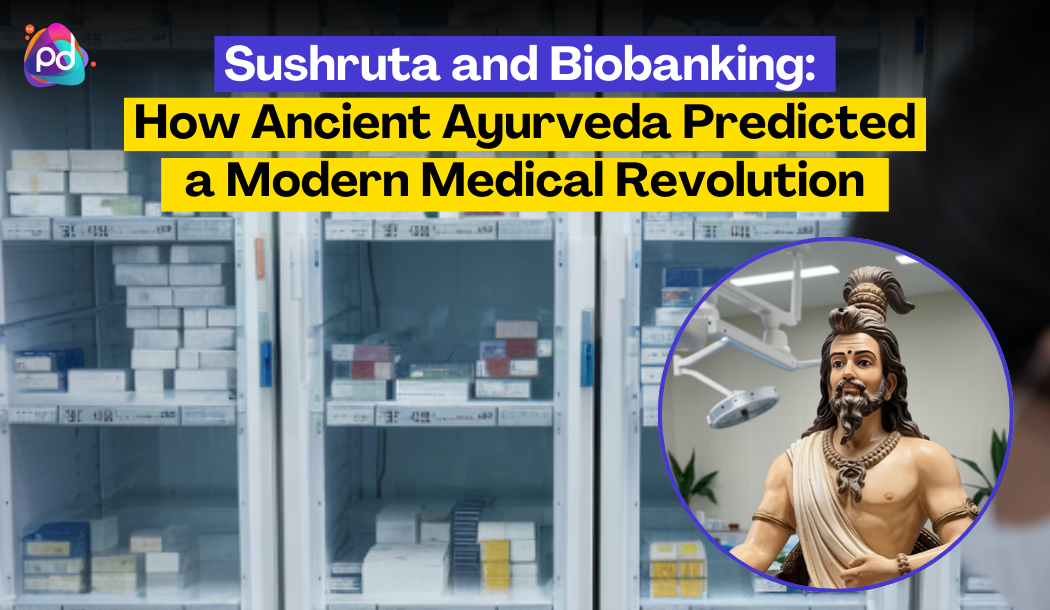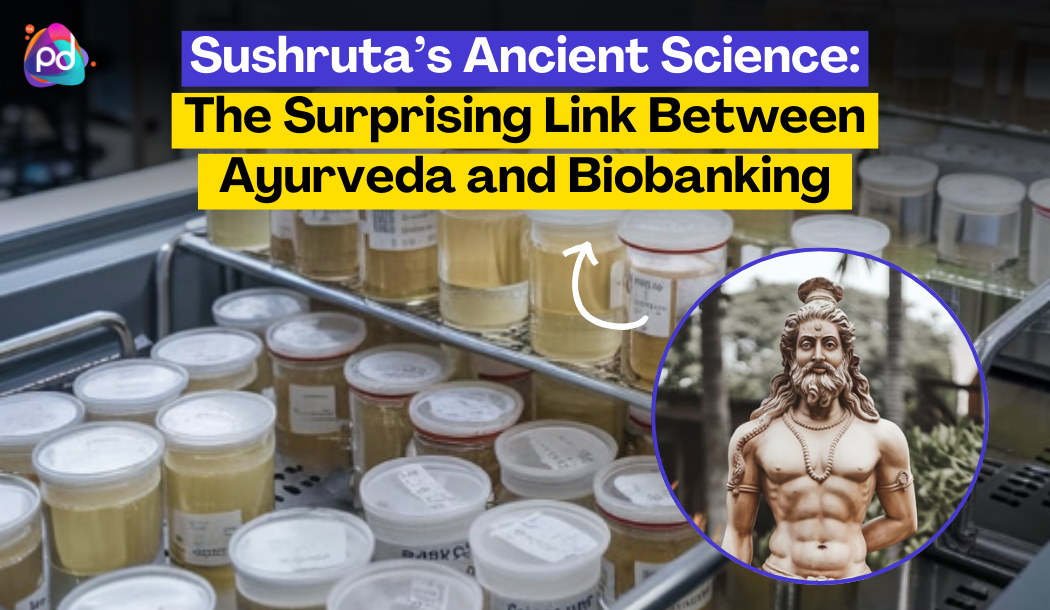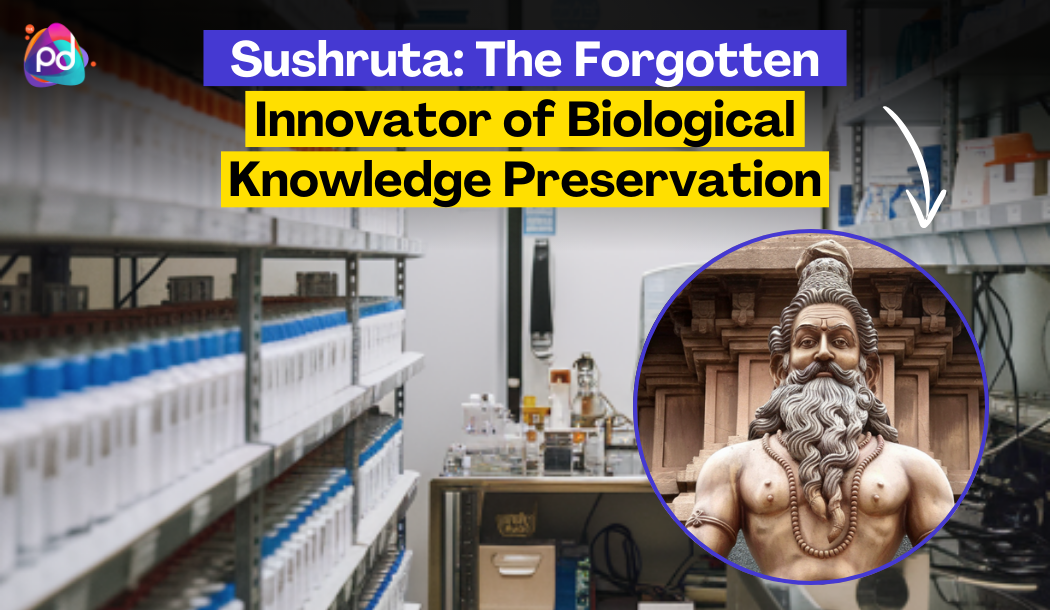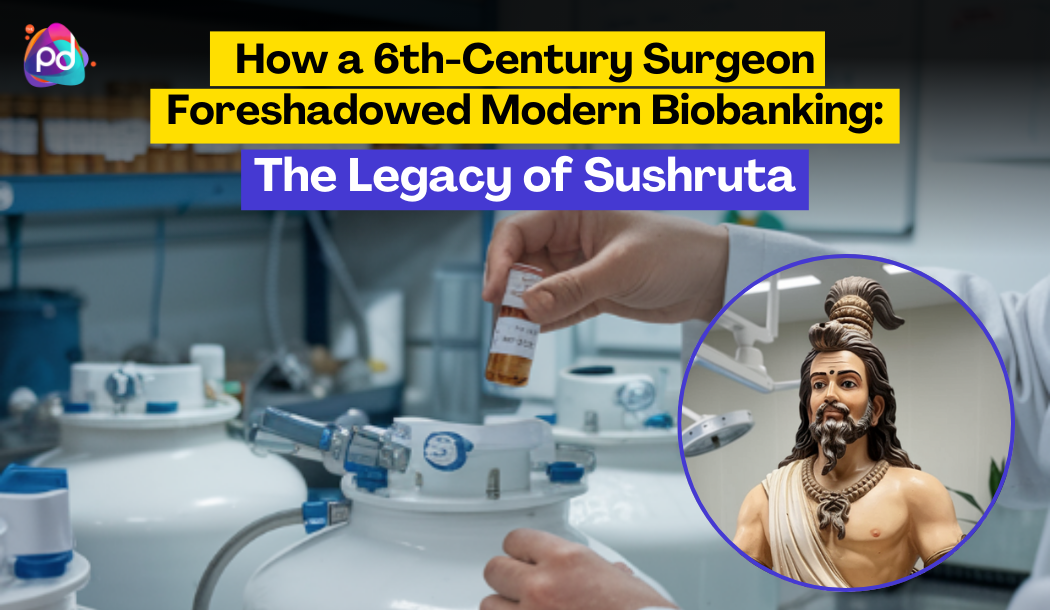Sushruta and Biobanking: How Ancient Ayurveda Predicted a Modern Medical Revolution
The concept of biobanking, storing biological samples for research and medical advancements, may seem like a cutting-edge modern innovation. However, the roots of this revolutionary practice can be traced back to the wisdom of Ayurveda, particularly the teachings of Sushruta, often referred to as the "Father of Surgery."
In this blog, we explore how the principles laid out in ancient Ayurvedic texts by Sushruta resonate with the modern concept of biobanking, demonstrating how ancient practices and beliefs have influenced the evolution of healthcare.
Who Was Sushruta?
Sushruta, an ancient Indian physician, authored the Sushruta Samhita, one of the oldest medical and surgical texts in the world. His work, dating back to 600 BCE, is a cornerstone of Ayurveda and provides detailed insights into surgical techniques, anatomy, and healthcare practices.
What makes Sushruta’s teachings extraordinary is their forward-thinking approach, many of which align with contemporary medical innovations, including biobanking.
Biobanking in Ancient Ayurveda
Although biobanking, as we know it today, involves advanced technology for storing biological samples like DNA, blood, and tissues, the essence of this practice finds its reflection in Sushruta’s methodologies.
1. Preservation of Biological Material
Sushruta emphasized the importance of preserving specimens for research and education. Ancient Ayurvedic practices often involved:
- Collection of tissues and samples for studying anatomy and disease patterns.
- Preservation techniques using natural herbs and substances to maintain the integrity of biological materials.
This mirrors the modern goal of biobanking: ensuring the quality and longevity of samples for future research.
2. Knowledge Sharing and Collaboration
Just as biobanks today facilitate global collaboration in medical research, Sushruta's teachings encouraged the systematic documentation and sharing of medical knowledge. His detailed dissections and cataloging of human anatomy paved the way for collaborative learning, much like biobanks enable multi-institutional studies.
3. Personalization of Medicine
Ayurveda’s focus on personalized medicine, based on an individual’s prakriti (body constitution), aligns with the modern goals of precision medicine powered by biobanking. By analyzing stored biosamples, researchers can develop treatments tailored to specific genetic and biological profiles, echoing the Ayurvedic approach of treating individuals holistically.
The Sushruta-Biobanking Connection
Sushruta’s foresight in understanding the importance of preserving biological materials and using them for advancing medical knowledge forms a conceptual link to today’s biobanking systems.
Modern Biobanking Inspired by Ancient Principles
- Collection and Annotation:
- Sushruta’s detailed records of surgical specimens reflect modern practices of annotating biosamples with clinical and demographic data.
- Ethical Sample Usage:
- Ayurveda emphasizes respect for life and ethical practices, paralleling the ethical concerns in biobanking regarding informed consent and data privacy.
- Global Collaboration:
- Sushruta’s knowledge-sharing tradition can be compared to biobanks’ role in fostering global research partnerships.
Biobanking: Revolutionizing Modern Medicine
Biobanking today is a cornerstone of medical research, enabling breakthroughs in:
- Cancer Research: Identifying biomarkers and developing targeted therapies.
- Genomics: Unlocking genetic insights to understand diseases.
- Rare Diseases: Facilitating research into conditions that were once impossible to study due to a lack of resources.
With advancements in cryopreservation, AI-powered analytics, and blockchain for data security, biobanking is poised to transform medicine even further.
What Can We Learn From Sushruta and Ayurveda?
Sushruta’s legacy serves as a reminder that modern innovations often have their roots in ancient wisdom. His teachings inspire us to:
- Value preservation and research: Just as he preserved specimens for education, today’s biobanks preserve biosamples for future breakthroughs.
- Adopt a holistic approach: Ayurveda’s holistic philosophy underscores the importance of integrating biological, environmental, and personal factors into medical research.
- Respect ethics in healthcare: Sushruta’s emphasis on ethics aligns with modern principles of responsible biobanking.
The Future of Biobanking: Merging Ancient Wisdom and Modern Technology
As biobanking continues to evolve, integrating ancient philosophies like those of Sushruta with modern technologies can lead to even greater advancements in healthcare. By combining the principles of preservation, personalization, and collaboration, biobanking can revolutionize medicine while staying rooted in ethical and holistic practices.
Conclusion
Sushruta’s contributions to Ayurveda and healthcare demonstrate how ancient wisdom anticipated modern medical advancements like biobanking. His focus on preserving biological materials, ethical practices, and personalized treatment reflects the core principles of today’s biobanks.
At Vigisolvo, we honor this legacy by offering cutting-edge biobanking solutions designed to meet the evolving needs of the pharmaceutical and healthcare industries. Our mission is to combine the best of ancient wisdom with modern innovation to drive healthcare forward.
Contact us today to learn more about how our biobanking services can support your research and innovation goals.




